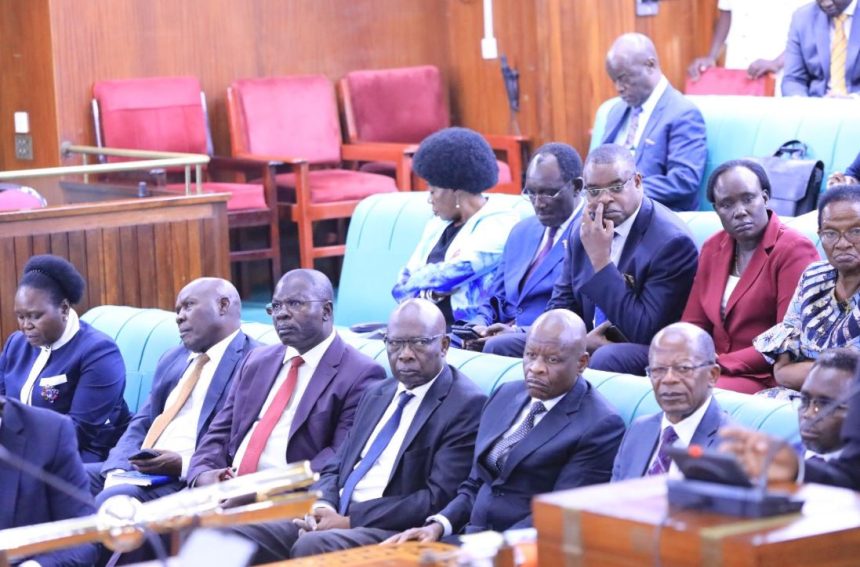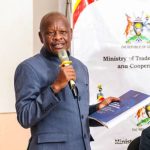Published on 22/10/2025
Parliament voted to maintain its current size of 539 legislators, despite concerns raised by some MPs about the productivity, relevance, and financial burden of sustaining such a large assembly.
The decision followed a motion tabled by Justice and Constitutional Affairs Minister Norbert Mao, under Article 78(2) of the Constitution and Section 8(3) of the Parliamentary Elections Act, to review the representation of special interest groups, including women representatives for each district, the Uganda People’s Defence Forces (UPDF), youths, workers, and Persons With Disabilities (PWDs).

Mao defended the continued representation of these groups, particularly the army, arguing that their inclusion addresses historical marginalization. “The army’s representation has been part of politicizing the military to align with civilian authority, fostering a culture of constitutionalism and rule of law,” he stated.

However, the decision sparked debate. In March 2025, Soroti Woman Representative Anna Adeke proposed halving Parliament’s size in her Alternative Policy Statement for the Public Service Sector.
She argued that with Uganda’s population of 48.66 million, each MP represents approximately 91,984 people, a low ratio compared to countries like India (552 MPs for 1.38 billion people, or 2.5 million per MP), China (2,980 legislators for 1.439 billion, or 482,000 per legislator), and Nigeria (360 MPs for 206 million, or 570,000 per MP).

West Budama North East MP Fox Odoi criticized the missed opportunity to reduce Parliament’s size, questioning the productivity and value of 529 MPs. “With a population of 48 million, do we need 529 MPs? We should have a smaller, more sustainable Parliament,” he said.
Erute South MP Jonathan Odur echoed these concerns, noting that the motion’s structure limited Parliament’s options to retain, increase, or abolish seats, but not reduce them without a separate bill. “The growing number of MPs is a significant burden on taxpayers,” Odur emphasized.
The cost of public administration remains a contentious issue. The Minority Budget Report for 2025/26, authored by Ssemujju Nganda, revealed that UGX 8.565 trillion (11.5% of the national budget) will cover public servants’ wages, with additional expenses totaling UGX 12.8 trillion, or 16% of the budget, for less than 1% of Uganda’s population.
Parliament’s Strategic Plan for FY2025/26–FY2029/30 projects a rise in its budget from UGX 917.642 billion to UGX 1.527 trillion, with MPs’ emoluments and medical insurance as key cost drivers.
PWD Representative Alex Ndeezi urged a review of special interest group representation, noting that while Parliament has grown from 290 MPs in 1996 to 529 today, PWD representation has remained static at five seats. “The proportion of PWDs has dropped from 2% to 0.8%. If unchanged, it could reach zero,” he warned, proposing an increase to ten representatives.
Attorney General Kiwanuka Kiryowa acknowledged the concern but cautioned that doubling PWD seats would strain the consolidated fund, violating Article 93 of the Constitution. He called for a national dialogue on Parliament’s size, stating, “We need to answer whether the current number of MPs is adequate and what must be done.”
The motion, fulfilling the constitutional requirement to review representation every five years, was put to a vote by Deputy Speaker Thomas Tayebwa and passed, retaining the current structure despite ongoing concerns about its sustainability and cost to taxpayers.
The 11th Parliament of Uganda comprises a total of 557 Members of Parliament (MPs). This number includes 353 directly elected constituency MPs and 146 district woman representatives. In addition, there are 30 representatives of special interest groups, namely 10 from the Uganda People’s Defence Forces (UPDF), 5 youth representatives, 5 workers’ representatives, 5 representatives for persons with disabilities (PWDs), and 5 representatives for older persons. The total also includes 18 ex officio members, mainly ministers who are not elected but serve in Parliament by virtue of their positions in government.








